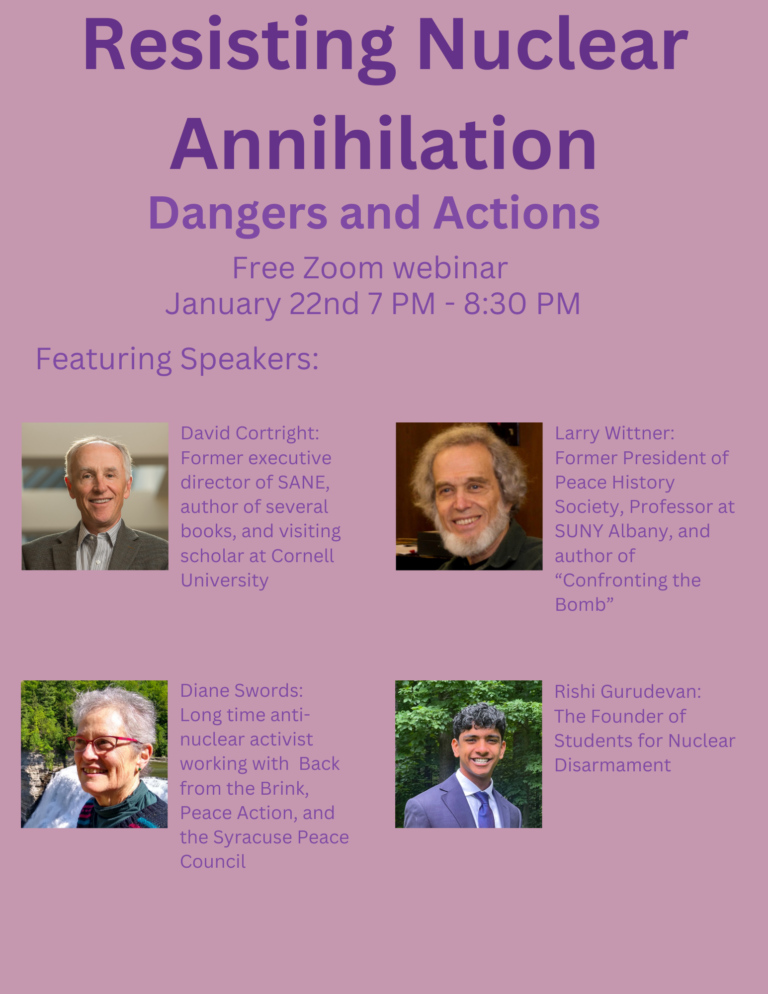The specter of nuclear annihilation looms large over the collective psyche of humanity, engendering a profound sense of dread and uncertainty. This fear is not merely a reflection of the destructive capabilities of contemporary warfare but also indicative of deeper existential concerns. In this context, the Bahá’í teachings provide a unique lens through which to examine our anxieties about nuclear cataclysm and the broader implications for global peace and cooperation. By offering a paradigm shift in perspective, these teachings illuminate pathways to personal and communal tranquility in an increasingly perilous world.
At the heart of the Bahá’í Faith lies the understanding that humanity is a single, interconnected entity. The teachings empower individuals to transcend divisions of nationality, race, and culture, advocating for a collective commitment to the betterment of society. This global consciousness serves as a foundational antidote to the pervasive fear associated with nuclear armaments. By recognizing our shared destiny, individuals can cultivate a greater appreciation for peace, instilling hope in an otherwise bleak landscape.
In fostering a culture of peace, Bahá’í teachings emphasize the necessity of unity among all peoples. The Bahá’í writings explicitly state that “the earth is but one country, and mankind its citizens.” Such a perspective is essential in combating the divisive ideologies that fuel conflicts and exacerbate tensions. Nuclear weapons, as instruments of division and fear, run counter to this principle of unity. By championing global cooperation, the Bahá’í Faith seeks to replace the hostility inherent in arms races with collaboration and mutual support.
A crucial aspect of navigating the trepidation surrounding nuclear annihilation is the process of spiritual and personal transformation. The Bahá’í teachings advocate for the importance of moral rectitude and the cultivation of virtues such as compassion, justice, and forbearance. These qualities not only foster inner peace but also empower individuals to become agents of change in their communities. When individuals embrace a mindset of service, they naturally gravitate towards solutions that prioritize the welfare of others, thereby diminishing the likelihood of conflict that could escalate to nuclear warfare.
Furthermore, an understanding of the principle of consultation plays a pivotal role in mitigating fears related to nuclear weapons. The Bahá’í writings extoll the virtues of open dialogue, collective decision-making, and shared responsibility. Engaging diverse perspectives in discussions regarding disarmament and international relations can lead to more holistic and effective solutions. This practice of consultation instills a sense of agency and ownership among participants, fostering a cooperative spirit that transcends national boundaries.
In addressing the anxieties related to nuclear warfare, the Bahá’í community also encourages extensive educational initiatives. Knowledge, viewed as a vital tool for empowerment, can dispel myths and misconceptions surrounding nuclear proliferation and create informed citizens capable of making meaningful contributions to dialogues about peace. The proliferation of grassroots education programs, driven by the principles of the Bahá’í Faith, can engender a culture of peace and non-violence, challenging the narratives that glorify militarism and fear.
Moreover, the notion of collective security as presented in Bahá’í teachings underscores the necessity of pursuing diplomatic solutions to disarmament and conflict resolution. The establishment of international frameworks that encapsulate the principles of equity, justice, and mutual respect is essential to reducing reliance on nuclear arsenals as means of national defense. The Bahá’í perspective posits that armed conflict is an outcome of societal dysfunction, reiterating the importance of addressing systemic issues such as inequality, environmental degradation, and lack of access to education. By nurturing a comprehensive approach to security that is rooted in justice, the specter of nuclear despair may be effectively mitigated.
Moreover, engaging in interfaith dialogue serves as a significant avenue for peace-building. Bahá’í teachings recognize the intrinsic value of all religions, promoting collaborative efforts among diverse faith groups to confront the challenges of nuclear armament. Through respectful exchanges and shared endeavors aimed at peace, communities can nurture transformative relationships that encourage healing and understanding, whereby fear diminishes and hope proliferates.
Ultimately, integrating Bahá’í principles into personal, communal, and global relations presents humanity with a powerful antidote to the pervasive fear of nuclear annihilation. By adopting a forward-thinking approach that prioritizes unity, education, and moral development, individuals can cultivate an ethos of peace and resilience. Such an approach not only addresses immediate concerns about nuclear proliferation but also lays the groundwork for a harmonious existence in an interconnected world. The teachings advocate for a shift from fear to faith, illuminating pathways toward a more secure and tranquil shared future.
As humanity grapples with existential challenges, the insights derived from Bahá’í teachings offer profound guidance. They compel us to ponder not merely the destructiveness of our technological advancements but also the potential for compassion and unity among all peoples. By shifting our perspective towards one of collective responsibility and enlightened action, we may cultivate an environment where fear of annihilation is supplanted by a palpable sense of peace, rooted in compassion, cooperation, and a commitment to the edification of all humankind.
